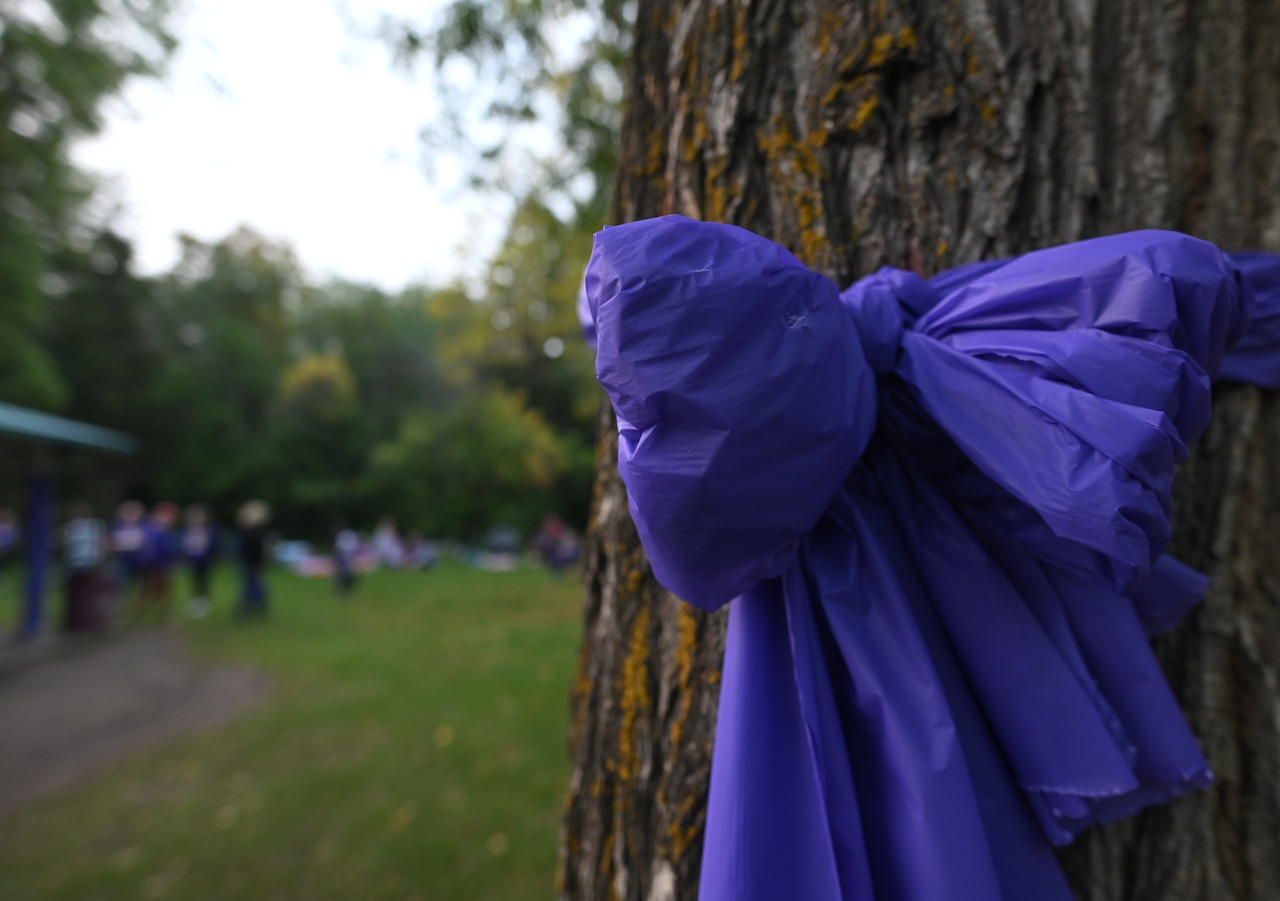STATEN ISLAND, N.Y. — New York landmarks will be illuminated in purple Sunday evning to honor the lives lost to drug overdoses and raise awareness about the ongoing substance use crisis, as the state marks International Overdose Awareness Day.
The annual lighting aims to reflect on those lost to addiction, recognize the grief of their loved ones and show solidarity with individuals still battling substance use disorders.
“Like many New Yorkers, I have witnessed firsthand the devastating impact of the overdose epidemic,” said Gov. Kathy Hochul. “We reflect on the lives lost to addiction and offer our support to those who continue to struggle.”
The state has made progress in reversing overdose trends. Recent CDC data shows overdose deaths dropped 28% from 2023 to 2024 — from 6,550 to an estimated 4,719 — a bit of a hope after years of rising fatalities.
Addressing the epidemic and achieving an overdose-free generation includes continued public awareness and a commitment to making lifesaving overdose reversal medications like naloxone available to the public.
It also increases access to fentanyl and xylazine testing strips and supports community-based organizations that work directly in communities impacted by the overdose epidemic.
Health Commissioner Dr. James McDonald said the day is “a moment to honor those we lost, while reaffirming our commitment to saving lives by establishing a compassionate health care system free of stigma.”
Major landmarks lit in purple will include:
- One World Trade Center
- Governor Mario M. Cuomo Bridge
- Kosciuszko Bridge
- The H. Carl McCall SUNY Building
- Alfred E. Smith State Office Building
- Empire State Plaza
- State Fairgrounds – Main Gate & Expo Center
- Niagara Falls
- The “Franklin D. Roosevelt” Mid-Hudson Bridge
- Grand Central Terminal – Pershing Square Viaduct
- Albany International Airport Gateway
- MTA LIRR – East End Gateway at Penn Station
- Fairport Lift Bridge over the Erie Canal
- Moynihan Train Hall
- Walkway Over the Hudson State Historic Park
Dr. Chinazo Cunningham, head of the state’s addiction services office, noted, “We are seeing significant progress in reducing overdose deaths… and we will continue to work tirelessly to use all available resources.”
A downward trend on Staten Island
Fatal drug overdoses are trending downward on our borough, throughout the state and nationwide compared to skyrocketing death tolls during the COVID-19 pandemic, according to experts.
While the powerful opioid fentanyl still is the main killer, experts say that stimulants such as cocaine and methamphetamine and animal tranquilizers that include xylazine often serve as deadly accomplices.
“We are seeing a decline compared to two years ago, which is good,” Richmond Country District Attorney Michael E. McMahon said about overdoses statistics for our borough.
McMahon praised the mission and work of the task force as “vitally important,” and said “it is clear that a lot of the efforts are paying off across the board.”
Mandated treatment proposal
Recently, Mayor Eric Adams announced a new legislative proposal that would allow medical professionals to mandate treatment for those struggling with substance use disorders.
If approved by the state legislature, the law would bring New York in line with 37 other states that already authorize involuntary commitment for addiction.
The proposed legislation, dubbed the “Compassionate Interventions Act,” would give medical professionals authority to transport individuals who appear to pose a danger to themselves or others due to drug abuse to hospitals for evaluation.
The court could then mandate treatment if attempts to have the individual commit to treatment voluntarily are unsuccessful.
“Our administration refuses to turn our backs on New Yorkers in need,” Adams said. “We must help those struggling to finally get treatment, whether they recognize the need for it or not.”
Staten Island addiction experts, including the borough’s district attorney, told the Advance/SILive.com they support the mayor’s proposal.
New Yorkers seeking help can call the state’s 24/7 HOPEline at 1-877-8-HOPENY or visit the NYS OASAS website for treatment options and support services.
If you purchase a product or register for an account through a link on our site, we may receive compensation. By using this site, you consent to our User Agreement and agree that your clicks, interactions, and personal information may be collected, recorded, and/or stored by us and social media and other third-party partners in accordance with our Privacy Policy.
